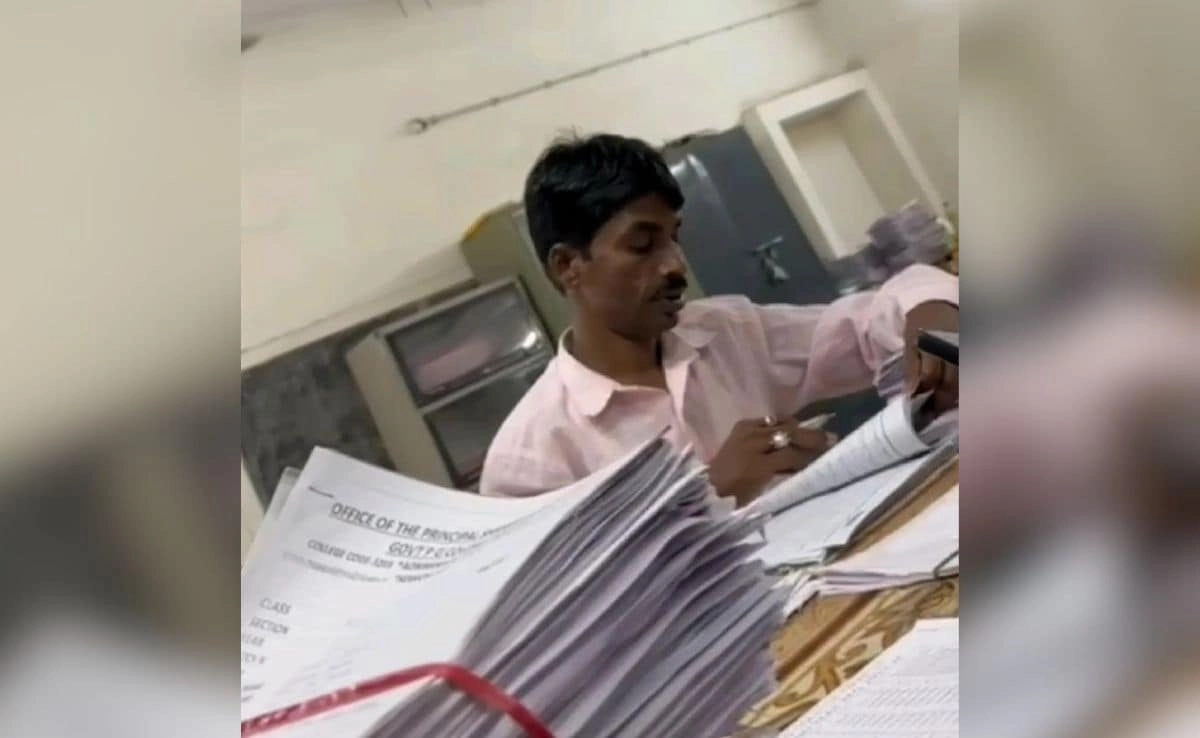In a surprising turn of events in Madhya Pradesh, a peon has been caught evaluating answer sheets, leading to the suspension of a principal from a local educational institution. This incident has raised serious concerns about the integrity of the examination process and the proper adherence to regulations within the educational system. Typically, the evaluation of answer sheets is a responsibility strictly reserved for qualified teachers and faculty members, whose training and expertise ensure that assessments are conducted fairly and accurately. The involvement of a peon in such a critical academic task not only undermines the credibility of the evaluation process but also raises questions about the administrative oversight in schools.
The discovery was made during routine inspections, where officials found the peon engaged in grading student answer sheets. This blatant breach of protocol prompted immediate action, culminating in the suspension of the principal who was responsible for overseeing the examination procedures. The principal’s suspension serves as a stark reminder of the consequences of negligence and the importance of maintaining standard practices in education. In the wake of this incident, the educational authorities have vowed to conduct a thorough investigation to determine how such a situation could arise and to implement measures to prevent any recurrence in the future.
Moreover, this incident highlights a broader issue within the educational framework in Madhya Pradesh, where there are ongoing concerns about accountability and the need for stricter enforcement of educational standards. Stakeholders, including parents and educators, are calling for reforms that will ensure that only qualified personnel are involved in critical tasks such as evaluating exams. This incident not only affects the immediate credibility of the institution involved but also has far-reaching implications for the trust placed in educational bodies across the region. As the investigation unfolds, it is hoped that lessons will be learned to enhance the integrity and reliability of the examination process, ensuring that students receive fair assessments based on their true capabilities.




